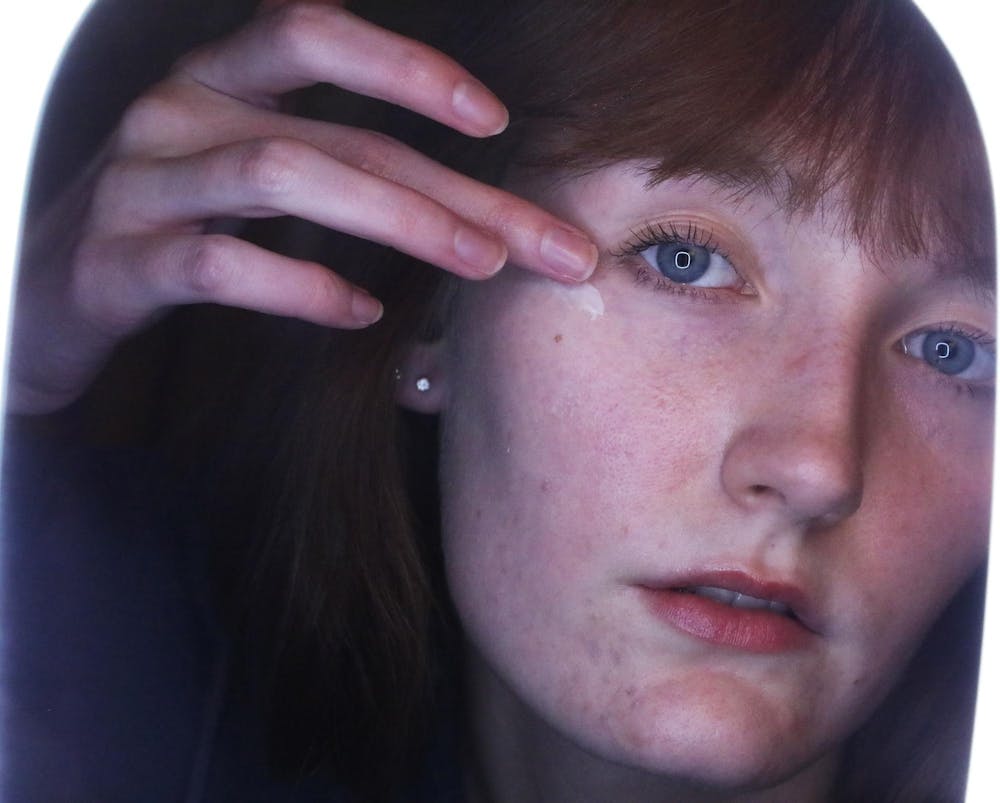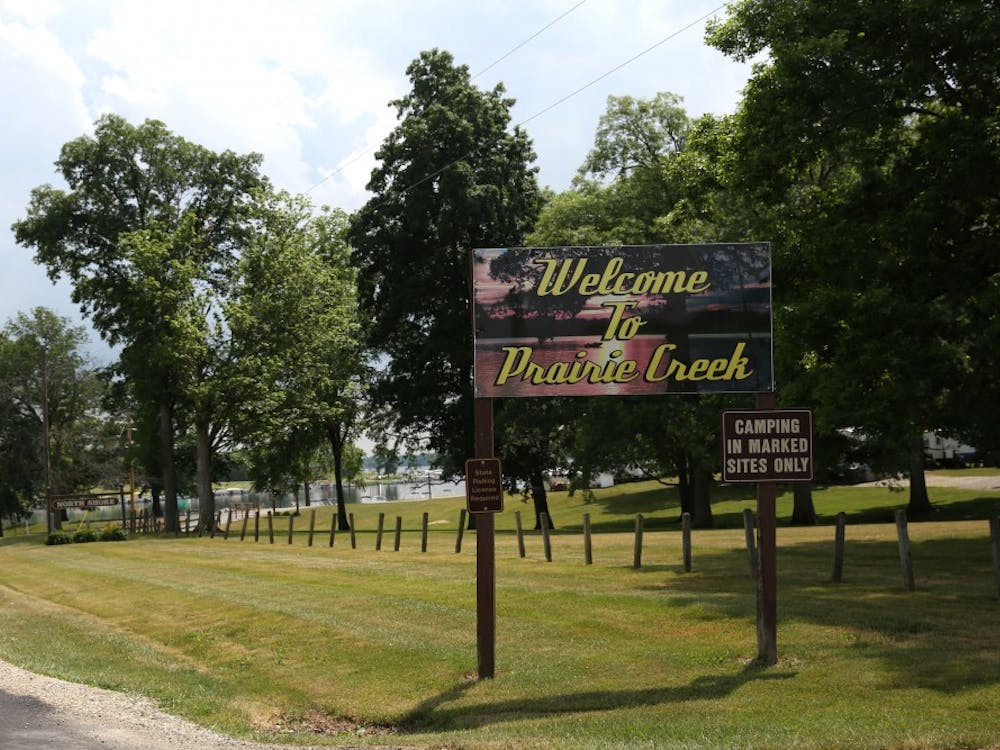Kate Farr is a second-year journalism major and writes “Face to Face” for the Daily News. Her views do not necessarily reflect those of the newspaper.
It’s the way my eyes crinkle when I smile or the wrinkle on my forehead from raising my eyebrows. It’s how I feel when my freckles become more apparent after I accidentally stay in the sun a bit too long.
There’s also the nervousness that settles heavily in my chest when I realize I forgot to put on retinol after showering and the fear I feel as I’m walking to class and realize I didn’t apply sunscreen.
When I got into high school, I started to splurge on all of the anti-aging products. I tried to gua sha, I used my mother’s night cream and I tried face tape in a desperate attempt to diminish my nonexistent forehead wrinkles.
I remember my mom always feeling better once she got her hair dyed to hide away the grays like it was some frantic course of action — an attempt to reverse the passage of time.
But why does aging have to feel like one of the hardest things women face? If you stop wearing makeup or let your gray hair grow in, you’re letting yourself go. If you wear a dress above the knees that shows cellulite or varicose veins — or even get Botox to lessen the smile lines you’ve had pointed out time and time again — you’re trying too hard or damaging your “natural beauty.”
So which is it? Are we to hide our age? Or are we to attempt “aging gracefully” as society says? It’s a double-edged sword: ageism and sexism all wrapped into one.
And it’s a brunt most women bear at some point in life. In our society, youth equates to beauty, and women are underneath the magnifying glass before they have the chance to hit their 30s or 40s.
Once I started to get more active on social media during high school, my “For You” page on Instagram and Pinterest was bombarded with videos of red light face masks, facial massages to “smooth fine lines,” peptide treatments and cold plunges — whatever the latest trend was at the time. Social media has only exacerbated the issue of pushing anti-aging treatments onto women of all ages.
Prejuvenation, or preventative treatments for aging, targets Generation Z by fueling a fear of aging, according to a recent study conducted by cosmetic dermatologists and surgeons. With rapidly changing aesthetics, skincare advancements and social media trends, prejuvenation is on the rise for a number of reasons.
Gen Z is the first generation to grow up during the prime time of the internet and digital media. With iPods and iPhones in our hands as early as elementary school, we’ve lived through face filters and the rise of selfies. We’ve dealt with warped perceptions and critiqued our features due to social media-perpetuated “perfection.”
Now, we scroll through TikTok to find ways to clear our skin and beat the reality of aging. Instead of visiting a dermatologist or booking a session with an esthetician, which comes with a price tag, we look to influencers with “flawless skin” posting about their 20-day detox or a celebrity’s skincare routine where they use their own brand of $100+ moisturizer.
With a wealth of information at our fingertips — both good and bad — it’s easy to get sucked in. Our societal attitude views the natural process of aging in a negative light, so it’s easy to fall for the endless routines and expensive products with the hope of eternal youth.
Our pursuit of prejuvenation is because of the world we live in. We’re stuck in a societal and cultural shift that emphasizes youth over the reality of living. Living a full life with deep wrinkles, stark white hairs and sagging skin is normal.
That’s what I find beautiful. I find it wonderful when we’re granted the privilege to live to an old age.
Yet, ageism promotes an exclusion of aging people, according to a 2022 study from the International Journal of Environmental Research and Public Health. It leads to stereotyped ideas and images of older people.
The promotion of ageism focuses on constructs like keeping older people separate from society — cut from social participation. But getting old shouldn’t mean starting to feel invisible or less than.
It’s crap.
And I’m tired of being scared to live or of something as simple as stepping out into the sun.
I’m tired of buying retinol when I haven’t even hit 20 years old.
Sure, we can care about the way we look. We can fawn over appearances and do facial treatments without the guilt attached. But a societal obsession over the way women look, especially as they age, is about more than just beauty. It’s about implementing standards and exacerbating a misogynistic power dynamic.
We need to stop ranking women by their age, looks or physical appeal. Women are more than the year they were born or their “fading” youth.
Growing old doesn’t mean we become a lesser version of ourselves, that we’re less interesting, less valuable or less full of life. It doesn’t mean we have to try to reverse the aging process or hide from the world.
It means we’ve had the pleasure of a life fully lived.
I’m tired of squandering the youth I have at this present moment because I’m so caught up in it being gone one day. I want to look in the mirror and be able to recognize all the women who lived a full life before me. I want to see my mom, my grandma and even my great-grandmothers whom I only ever saw photographs of.
I want to carry them with me as my skin starts to sag and my eyes crinkle at the corners from how much smiling I did. I want to live that life — one fully lived — with all the changing and aging that comes with it.
So smile and laugh until your face hurts, until you’re winded and gasping for breath. Choose the life that’ll show 40 years down the road when your bones creak and your face is weathered with wrinkles and blemishes.
When I’m on my deathbed, I won’t be thinking about my wrinkles. I’ll be thinking about the time I had with the people I love and the memories I made. A person who was loved in a well lived life will show the passage of time in their changing beauty.
That will be enough for me.
Contact Kate Farr with comments at kate.farr@bsu.edu.





